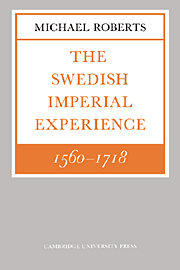Summary
to receive an invitation to deliver the Wiles Lectures is an honour which in the course of the last twenty years has come to be greatly prized by historians; and though it must for the lecturer be a somewhat unnerving occasion, as he confronts those experts in his own field whom the University has invited from elsewhere to do battle with him, the warmth of the hospitality of the Department of Modern History ensures that it shall also be a pleasure. For me it was especially so, since it afforded me the opportunity to return to my old University; to renew contacts with old friends and colleagues, in and out of the Department; and not least to meet once more Mrs Janet Boyd, to whose munificent vision the Wiles Lectures owe their foundation and a great part of their characteristic flavour. To her, to Professor Lewis Warren, to the members of the Department, and to those who came from other universities to grace the occasion and by their contributions to the discussions to set right much (though I fear not all) that was amiss, I offer my sincere thanks.
Among the purposes which Mrs Boyd had in mind when the Lectures were first founded was that they should provide a historian with an opportunity to look back on his work, in the hope that he might be able to see it in broader perspective, and make his conclusions available to a rather wider and less specialized academic public. It was with this in mind that I pitched upon the topic of these lectures; though indeed I was perhaps hardly competent to pitch on any other.
- Type
- Chapter
- Information
- The Swedish Imperial Experience 1560–1718 , pp. ix - xPublisher: Cambridge University PressPrint publication year: 1979

